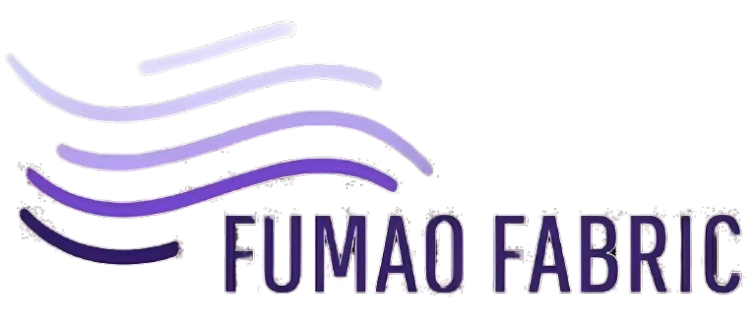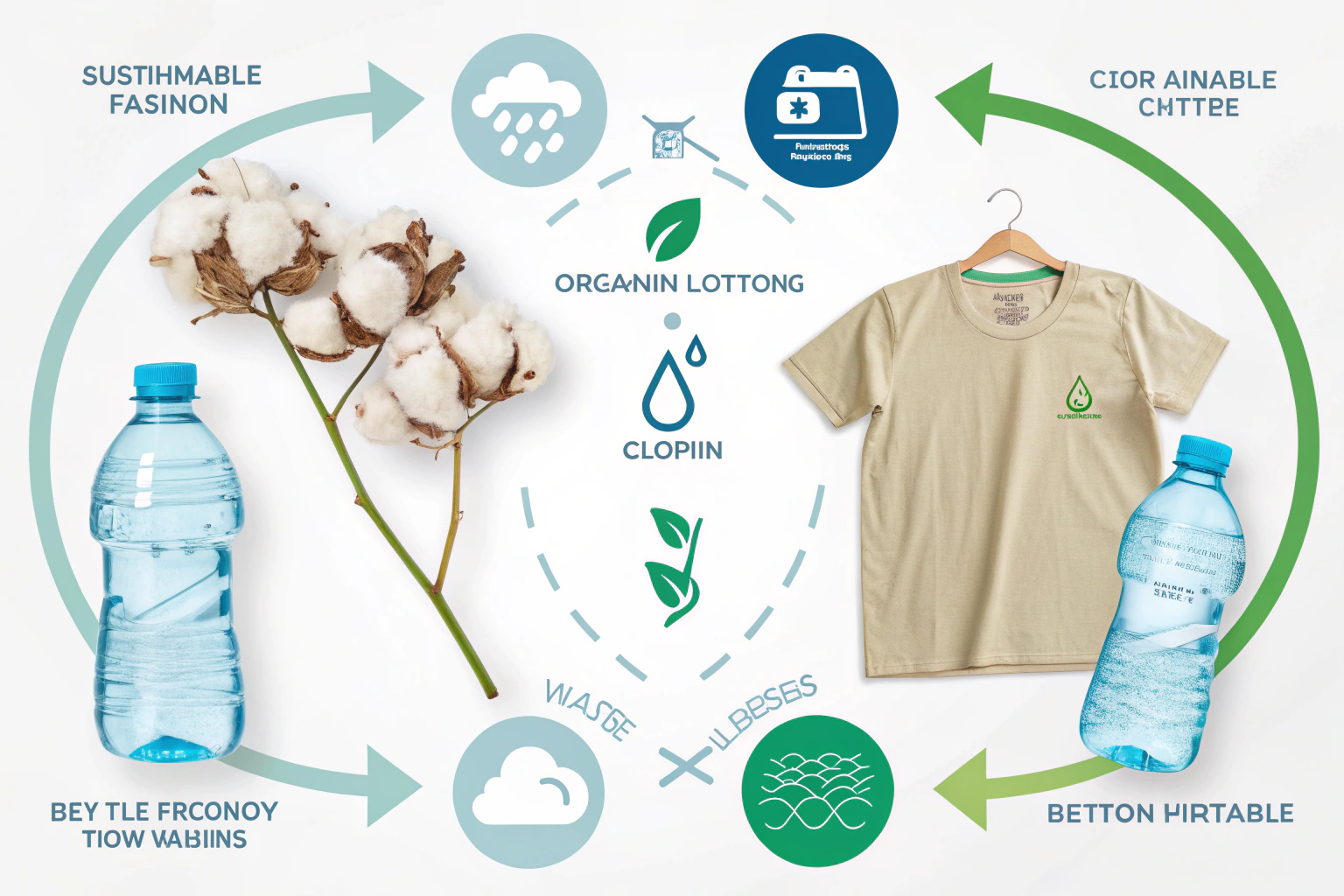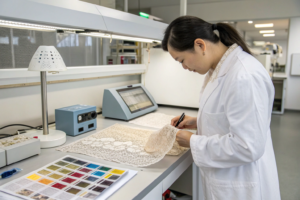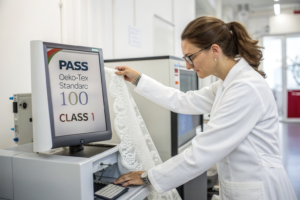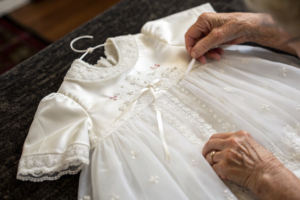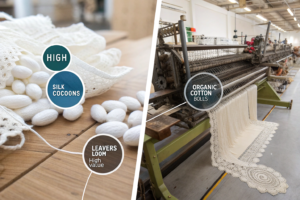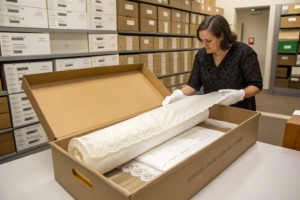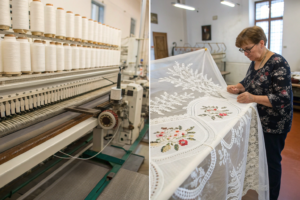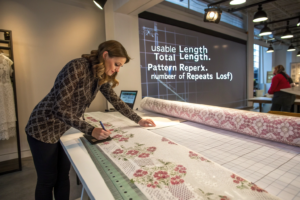As a fabric supplier with over two decades in the industry, I hear this question all the time from brands like yours. You want to create a T-shirt line that's not only stylish and comfortable but also genuinely better for the planet. The choice of material is the most critical decision you'll make, and it can feel overwhelming.
The best fabric for your eco-friendly T-shirts depends on your brand's specific priorities. If your primary focus is biodegradability and a natural feel, organic cotton is the superior choice. If your goal is reducing plastic waste and creating a high-performance garment, recycled polyester stands out. Both are excellent, sustainable options, but they serve different purposes and customer values.
Let's break down this complex decision. We will explore the unique benefits and trade-offs of each fabric. This will help you make an informed choice that aligns with your brand's mission and your customers' expectations.
What are the key benefits of organic cotton for T-shirts?
Many brands come to us seeking the pure, natural feel that only cotton can provide. Organic cotton takes this a step further by addressing the environmental concerns of conventional farming. It's a favorite for brands that want to lead with a natural and biodegradable story.
Organic cotton is grown without synthetic pesticides and fertilizers. This method protects farmers' health and preserves local ecosystems. The fabric is also fully biodegradable. When a T-shirt made from organic cotton reaches the end of its life, it returns to the earth without leaving behind microplastics. This closed-loop natural cycle is a powerful marketing point for any brand. Furthermore, the Global Organic Textile Standard (GOTS) certification ensures the integrity of the organic claim from field to finished product, giving you and your customers peace of mind.
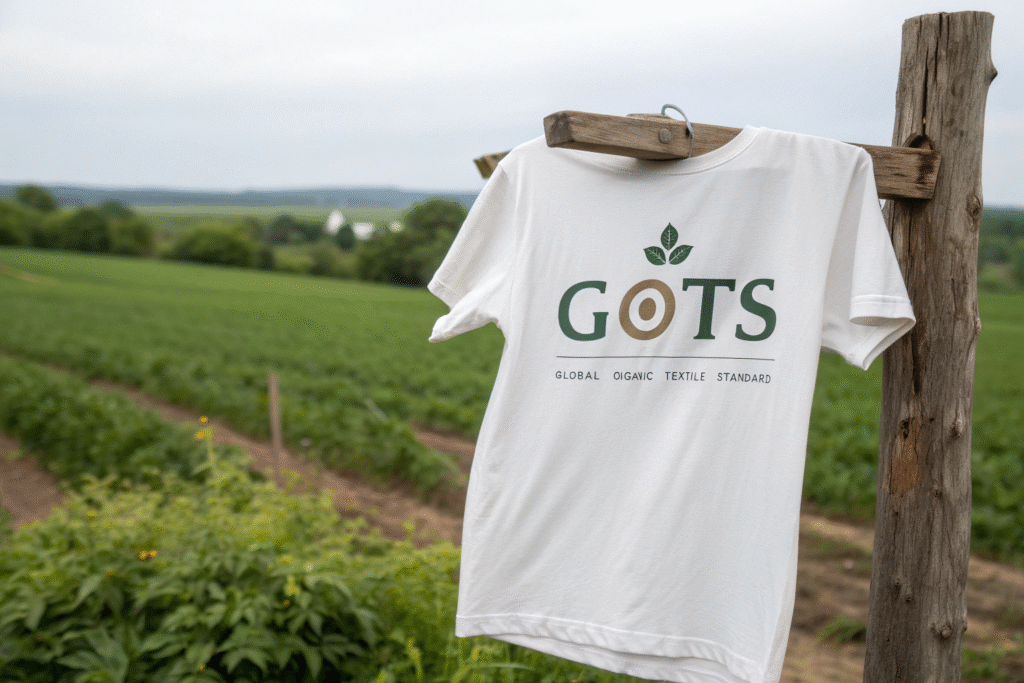
How does organic cotton impact water and soil health?
While organic cotton is celebrated for ditching harmful chemicals, its water footprint is a common topic of debate. It's true that cotton is a thirsty crop. However, organic farming practices often improve soil health, increasing its ability to retain water. Over time, healthy soil rich in organic matter requires less irrigation. This is a key difference from conventional cotton farming, which can degrade soil quality. By supporting regenerative agriculture, organic cotton farming can become part of the solution to water conservation, not just a lesser evil.
Why is GOTS certification so important for authenticity?
In today's market, simply calling a fabric "organic" isn't enough. Greenwashing is a real concern that can damage your brand's reputation. This is where GOTS certification becomes non-negotiable. It is the world's leading processing standard for textiles made from organic fibers. It verifies the organic status from harvest to labeling. This provides a credible, third-party assurance that the organic cotton T-shirt you are selling is genuinely organic. For brands selling in the EU and US, this certification is often a prerequisite to access the market and avoid legal challenges.
How does recycled polyester support a circular economy?
The appeal of recycled polyester lies in its direct action against plastic pollution. For brands focused on performance and waste reduction, it's a compelling choice. We've seen a 30% year-over-year growth in demand for our rPET fabrics, especially from sportswear and outdoor brands.
Recycled polyester gives a second life to post-consumer plastic waste, like PET bottles. This process diverts plastic from landfills and oceans. It reduces our reliance on virgin petroleum-based materials. Producing rPET requires significantly less energy and water compared to its virgin counterpart. This directly lowers its carbon footprint. Fabrics made from rPET are identical in performance to virgin polyester. They offer excellent moisture-wicking, durability, and shape retention. This makes them ideal for athletic T-shirts that need to withstand rigorous activity and frequent washing.
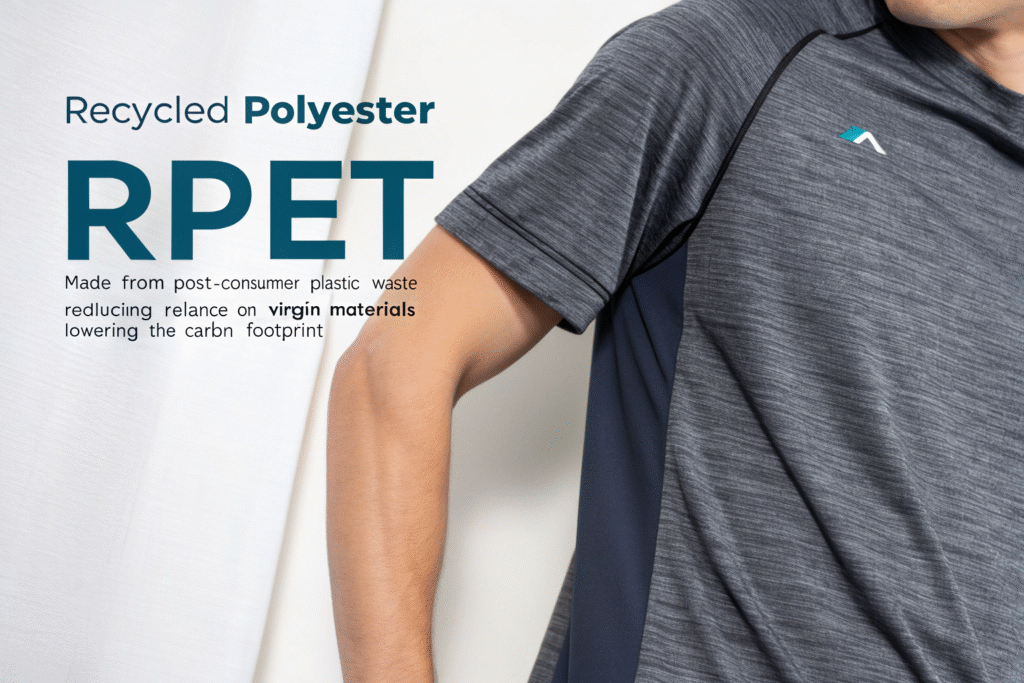
What is the actual process of transforming plastic into fabric?
The journey from a plastic bottle to a soft T-shirt is a fascinating feat of engineering. First, collected PET bottles are thoroughly cleaned and sterilized. They are then crushed into tiny flakes. These flakes are melted down and forced through a spinneret to create new polyester filaments. These filaments are spun into yarn, which is then knitted or woven into fabric. This process, known as mechanical recycling, is efficient and well-established. It allows us to create high-quality, consistent fabrics that perform reliably for our clients.
Can recycled polyester garments be recycled again?
This is a critical question for the circular economy. Currently, most recycled polyester from bottles is downcycled. This means the resulting T-shirt may not be easily recycled into a new T-shirt of equal quality. The technology for closed-loop recycling of textiles is still developing. However, choosing rPET is still a massive net positive for the environment because it tackles the existing waste problem. The industry is actively working on chemical recycling solutions to truly close the loop for polyester textiles in the future.
Which fabric scores higher on comfort and performance?
You can have the most eco-friendly T-shirt in the world, but if it's not comfortable or functional, it won't sell. The "feel" of the fabric is paramount. This is where the inherent properties of the fibers create a clear distinction.
Organic cotton is the undisputed champion of comfort in the natural fiber category. It is soft, breathable, and hypoallergenic. It feels gentle against the skin, making it perfect for everyday wear, baby clothes, and people with sensitive skin. Its natural fibers allow air to circulate, keeping the wearer cool and comfortable. However, cotton absorbs moisture rather than wicking it away. This means it can feel heavy and damp during intense physical activity. Recycled polyester, on the other hand, is lightweight and strong. It excels at moisture management, pulling sweat away from the skin to the fabric's surface where it can evaporate quickly. This keeps the wearer dry and comfortable during workouts. The trade-off is that it is less breathable than cotton and can retain body odor if not treated with specialized finishes.
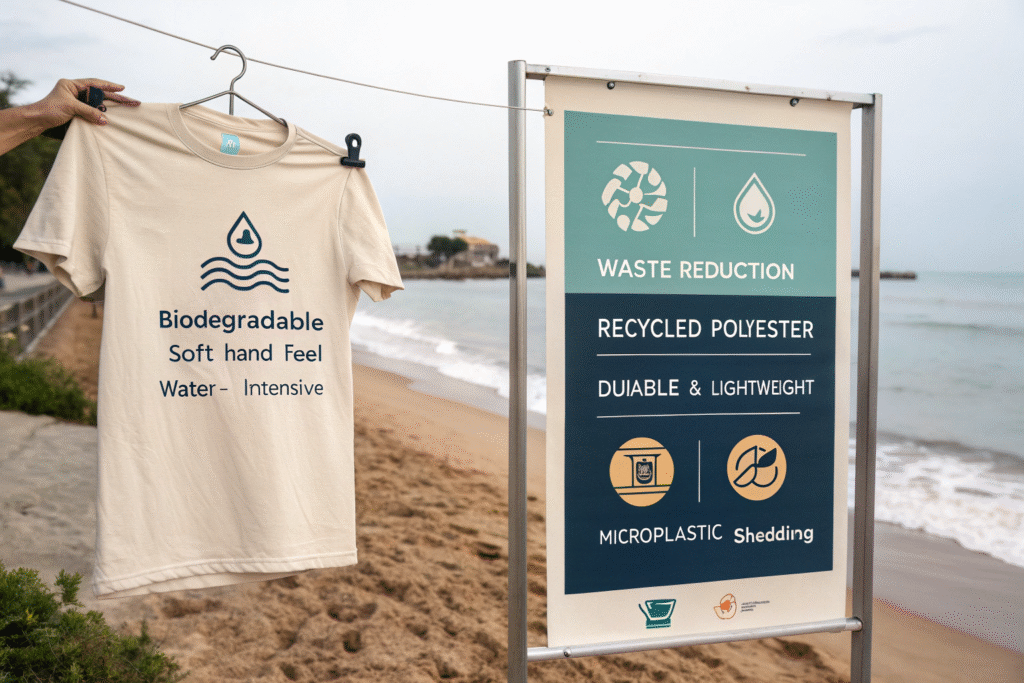
Is there a way to get the best of both worlds?
Absolutely. This is one of the most popular requests we get from innovative brands. Blending organic cotton with recycled polyester creates a hybrid fabric that leverages the strengths of both materials. A common blend is 60% organic cotton and 40% recycled polyester. This combination offers the soft, breathable feel of cotton with the improved durability, wrinkle resistance, and moisture-wicking properties of polyester. For brands looking to create a versatile T-shirt that transitions from casual wear to light exercise, a blend is often the perfect solution.
How do I choose based on my target customer?
Your customer profile should guide your fabric choice. Consider this simple table:
| Target Customer | Recommended Fabric | Primary Reason |
|---|---|---|
| Eco-Conscious, Value Comfort | Organic Cotton | Natural, biodegradable, soft, and breathable. |
| Active & Outdoor Enthusiasts | Recycled Polyester | Moisture-wicking, durable, and lightweight. |
| The Versatile, Everyday User | Cotton-rPET Blend | Balanced comfort, performance, and sustainability. |
How do costs and logistics compare for US imports?
As a business owner, you must consider the bottom line and supply chain efficiency. The cost and logistics behind your fabric choice directly impact your profitability and delivery timelines, especially when shipping from China to the US.
From our experience supplying both fabrics to the US market, organic cotton typically carries a higher price point than recycled polyester. The costs of GOTS certification, manual farming practices, and lower yields contribute to this. However, the market value and price you can command for a certified organic product are also higher. In terms of logistics, both fabrics are stable and easy to ship. A key advantage we offer all our US clients is that our fabrics and finished garments are not affected by US tariffs on Chinese goods. We achieve this through strategic packaging and customs clearance processes that we have perfected over 20 years. This can lead to significant cost savings for you.

What are the hidden costs I should be aware of?
The sticker price of the fabric is just one part of the equation. For organic cotton, ensure your quote includes the cost of GOTS certification documentation, which is mandatory. For recycled polyester, ask if the yarn is from certified post-consumer waste (like rPET with relevant certifications) as this can affect cost and credibility. Furthermore, consider the weight and bulk of the final product. Cotton T-shirts are generally heavier than polyester ones, which can slightly increase your shipping costs per unit.
How can a supplier ensure timely delivery and avoid tariffs?
This is where a supplier's expertise becomes critical. We manage this for our clients through an integrated system. Our professional QC team oversees every stage, from weaving to final packaging, preventing delays. We have established relationships with logistics partners, giving us access to reliable sailing schedules. Most importantly, our deep knowledge of customs regulations allows us to correctly classify our products, ensuring they are not subject to the Section 301 tariffs for our US clients. This end-to-end control is a core part of the value we provide.
Conclusion
The debate between organic cotton and recycled polyester doesn't have a single winner. Organic cotton shines with its natural comfort, biodegradability, and soil-health benefits. Recycled polyester excels in performance, waste reduction, and a lower carbon footprint in production. Your final choice should be a strategic one, reflecting your brand's core values and the functional needs of your customers.
If you're still weighing the options, remember that the best solution might be a blend or even offering both in your collection. The most important step is to partner with a supplier who can provide transparent, certified materials and a reliable supply chain. This is where we can help. We don't just sell fabrics; we co-create value. Let's discuss how we can source, develop, and deliver the perfect eco-friendly fabric for your T-shirt line. For a direct conversation on how to start your order, please contact our Business Director, Elaine, at elaine@fumaoclothing.com. We are ready to support your brand's sustainable journey.
